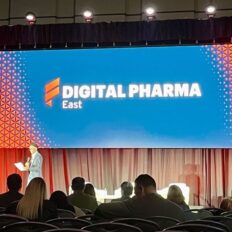Qualtrics’ X4 is an experience management summit that gathers iconic creators and leaders to share their experiences and pivotal moments in their careers and their industries. In particular for the healthcare industry, it was exciting to stream the interview with Trinity Health’s CMO/CXO, Julie Washington, as she discussed the new era of the patient experience. Here are some of the key points she made during the summit:
Listening Without Action is Only Half the Strategy
One of the continuing conversations in healthcare is how to still meet regulatory standards but also accelerate the conversation to make our systems better if not excellent. Washington gave an example during her discussion that there was a significant amount of people in Black, LatinX and Asian communities not getting the vaccine. Not only was there a lack of access for some of these communities but also a hesitancy around the vaccine itself. Armed with information, the team went into these communities to provide access. But the true victory Washington said wasn’t just in the 165,000 doses given but in building the relationships with these community members. By delivering these vaccines and the information around them, they were listening to the problem at hand. Building a relationship with them is the part that is being actionable. Now instead of just treating a problem, there is a lifetime of information that can be provided from these relationships that can help prevent future issues. It’s important for those within the healthcare industry to keep this in mind as we try to move forward and be more equitable to both the patients’ and healthcare providers’ needs.
Personalizing Data
While we now have the technology that collects and produces data information in ways unimaginable even a decade ago, that is simply not enough. Washington explains that not all data is relevant for everyone. In traditional measurements, there is almost too much information to decipher and while a nurse will need information to assist a patient, it is not the same information that the president of the hospital will need. It’s important to be able to personalize the data. Not only does this give a more individualized assessment of the patient at hand but it also creates timeliness for those processing this information. People need to get the information they need in the way that they want. By personalizing this, it creates a better experience for all.
The Importance of EQ and IQ
Washington credited the quote to Maya Angelou of “People don’t care how much you know until they know how much you care.” Intellectual intelligence is vital to the healthcare industry but often emotional intelligence is overlooked. In order to be able to leverage data and technology properly, we can’t just be looking at the numbers. If instead we also focus on the emotional touchpoints, this can create better systems and processes so that the right impact can be created for the right person at the right time. Not only will caring about the emotional impact as well as physical show the patient the genuine thought and care, it allows technology to develop and adapt to be customized to the individual needs. There is no one size fits all when it comes to healthcare and by acknowledging both sides of EQ and IQ, we can advance far faster than we could with only half the information.
While all these points are important takeaways, all of these won’t be able to move forward without the example set by healthcare leaders. It’s not easy to make large strides forward, but leadership can inspire and compel people to act beyond the standards of the industry. By having a leader make the spark, it can ignite the passion and flames to continue this way of thinking. By leading through evaluating the care and experience, we can have a more connected journey. Analytics and data will only get us so far. It is the insight and action that puts it truly to work. And with true health equity, all of the voices in the healthcare industry can be brought together and connect in such a way to not just cure but prevent medical setbacks.



